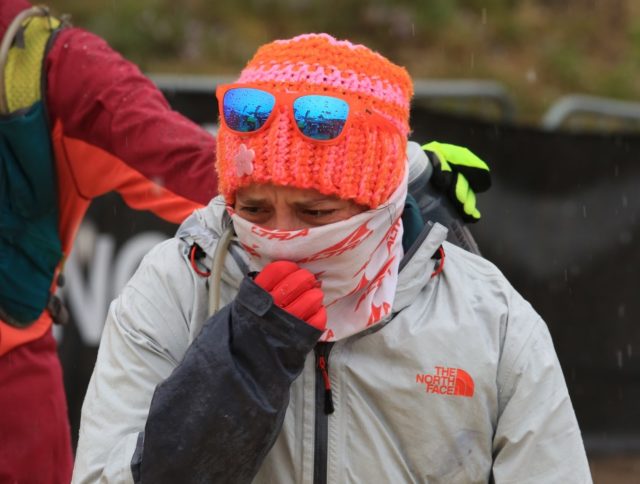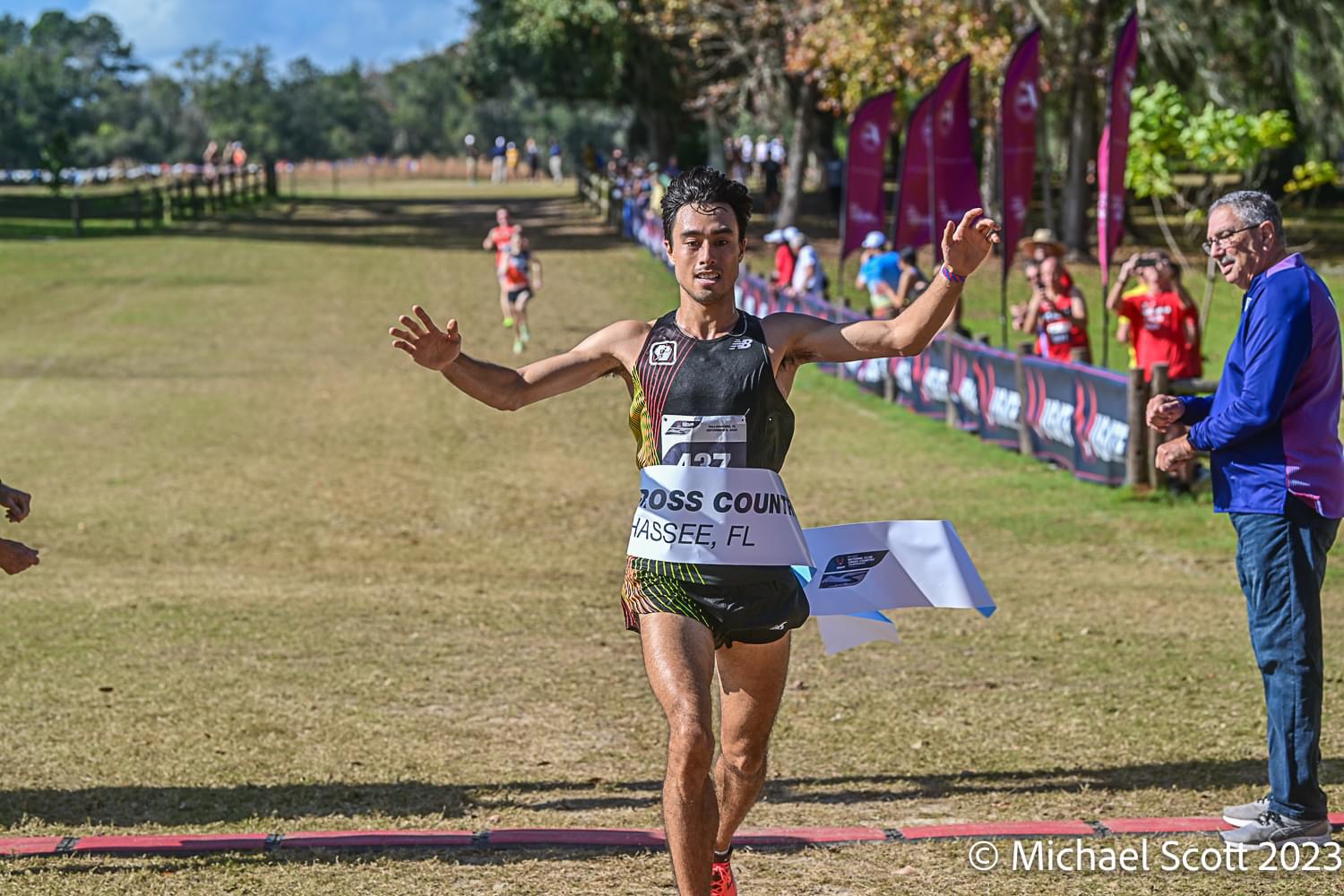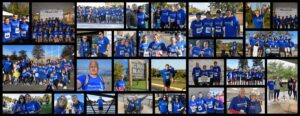
My first ultramarathon was supposed to be the North Face 50K in September of 2009.
My actual first ultra was the Rosaryville 50K that July. Then the Catoctin 50K in August. Then The North Face 50K in September.
All because of Bob Gaylord.
I’d met Bob and his long-time running buddy Stan the previous May, the way I meet all my trail friends: Randomly in a parking lot at a trail head. Then, at some point between May and July, Bob convinced me that the best way to train for a 50K was to run a different 50K. You know, as a training run. And oh by the way, Catoctin is one of the tougher courses in our area — but it’ll be fun.
So … sure … what could go wrong?
That summer I got a crash course in trail running from Bob, who’d been running ultras longer than I’d been alive. I dubbed him my Trail Yoda and followed him for miles and miles and miles (and miles) across Virginia and points beyond. He saved me from making a lot of rookie mistakes, but there were still some tough trail lessons I had to learn on my own.
Such as: Trail races distances are always measured in “ish.”
I clearly remember reaching the mile 25(ish) aid station at Catoctin — on a typically horrible, hot and humid day — and congratulating myself on only having six miles to go. This race was really, really hard, but I was feeling pretty good and I was going to finish. Absolutely. No problem. I’m a BEAST.
But 7.infinity miles later I stopped and looked around … but where was the finish? My fancy new watch is telling me I’m at 32 miles … but I hear nothing except my own wheezing and swearing. I’m miserable, this is terrible, how is this fun? I hate everything. THIS IS ALL YOUR FAULT, BOB.
I stubbornly death marched to the finish (which was, of course, up a steep hill) and promptly threw myself on the ground in a tantrum. I hadn’t been mentally prepared to go one step past 31 miles and those many, many unexpected steps had left me completely defeated.
This lesson has stuck with me for more than 10 years of trail racing: The race starts when someone says “GO!” and lasts until someone tells you to stop — no matter how far that actually is. Just keep moving forward, you’ll eventually get there.
And don’t yell at Bob, he means well … most of the time.
New trail runners can benefit greatly from having their own Trail Yoda. As much as I cursed him, Bob taught me the majority of what I know about running long. This got me thinking about what other tips experienced trail runners could share. So I asked. Or more accurately, I asked the Virginia Happy Trails Running Club’s Facebook page what those runners wished they’d known before their first long races. Here’s what they said, edited for length and clarity:
Trail Running is Sometimes Walking
Rob Colenso: I wish someone had told me the “if you can’t see over it, walk it” rule. 😊
Samantha Neakrase: I wish someone had told me that walking is ok when necessary, but if you are at the back of the pack and walk too much you might miss the cutoffs. I also wish someone had told me that if you have to walk, to walk with purpose.
Adeline Ntam Walk with purpose and smile with each step … makes the adventure easier. Also say hi to everyone that you come across, they may be having a bad day and that little hello will perk their spirits
Terry Miller There’s sometimes shockingly little *running* in trail running. Which is cool … but you need to walk fast. And regardless how bad (or good) you’re feeling, don’t worry, you’ll get over it. It never always gets worse.
Tracy Cooley I thought trail running would be a good way of avoiding speed work but after 20 years of running long distances, I finally decided to breakdown and work on speed. It not only helps with making time cutoffs but races are more efficient and … dare I say … enjoyable.
Eating, Drinking … and Sometimes Regretting
Bethany Patterson Don’t eat a bunch of pasta the night before then Reese’s peanut butter cups during your first 50-miler or you will spend half the race in the woods. 😬
Jake Kruse My first 50k was in November on a loop where the aid stations were 4.5 miles apart. I thought that was close enough and I didn’t bring any water at all. Suffice to say somewhere around Mile 25 things went very badly for me. The next 6 miles were a dehydrated zombie death march. Moral of the story is that was years ago, and in all the races since I have yet to meet a runner who says, “Man, I wish I brought less water with me.”
Jake Kruse Do not chug a large bottle of ice tea in the middle of the race unless you are curious to know what it feels like to throw it up 20 minutes later. It tasted delicious at the time. Less so in reverse.
Beth Foster: Alexander Schnoeller and I both carried enormous CamelBacks full of water on our first BRR [Bull Run Run 50] and declined salt tablets when offered. Wish someone would have told us what to carry as first time distance racers and what not to carry because it was too much!
Sheila Vibert I wish I knew more about adequate salt intake. I knew I had take in some, but didn’t realize how much … ran around looking like the Michelin man quite a few times
Mario Raymond Look around. It’s f**ing beautiful. Oh, and don’t try to stop the vomit with your hands. It makes a mess of your water bottles later.
Slow Down!
Erik Price Throw “pace” out the window, especially if you are shooting for 7/8/9 minute miles!
Derek Kennedy Slow down! I had it in my head that I’d do 10 min/mile going out and 8 min/mile coming back. Guess who was walking the last 6 miles? I’ve never heard an ultrarunner say “Man, I wish I took that first half faster.” Blowing up is often a function of moving too fast too soon. Go out slower than you think you should, and you’ll have legs left to crush your finish.
Kirstin Walcott Corris Leave the Garmin in your pack. Looking at miles/minute will only frustrate and sabotage you on trail.
Gear Saves / Woes
Karen Sanzo My first ultra was mostly below freezing temps. I didn’t know to keep my pack under my jacket and my nozzle close to my skin to keep from freezing. My hydration pack was basically useless because of the frozen nozzle.
Stephanie McQuade Dempsey Maybe don’t wear treadless shoes in the mud. My first ultra was a super muddy North Face at Algonquin Park after a big rain storm. I wore my white Saucony Kinvara road shoes because they were all I had. It was 50k of Slip N Slide and so much fun. I was a muddy mess, had to claw my way up the slippery banks of several stream crossings and had a hip flexor strain after it was all said and done. But I loved it and learned that they make trail shoes for a reason. I switched to the Saucony Peregrine and years later they are still the shoe of choice for me.
Bernadette Kilcer: Dress for YOU. Just because someone else is wearing shorts in 30 degrees doesn’t mean YOU should.
Larry Huffman To avoid hypothermia, change out of wet stuff at aid stations before sitting down to eat or change socks/shoes. And stay out there and get the job done. Soon enough it will be Tuesday afternoon at work. Right now is a gift.
Scott Lemmon When the temperature climbs in the afternoon, don’t drop the layer you will want when you cross the ridge in freezing temps towards sundown. I did that on my 3rd ultra and found the cold along with the warm campfire at the finish line to be highly motivational. 36 stream crossings and 30 degrees is the recipe for feeling like a drowned rat, lol.
Corey Gray The benefit of carrying paper towels over TP once things get a little sweaty.
Ultras are Mental
Samantha Neakrase I wish someone had told me that pain and suffering is all part of an ultra (within reason) and that just because it hurts or sucks, doesn’t mean you should throw in the towel. It’s supposed to hurt to an extent and you can almost always find your way through to the other side.
Jim Nagle I wish I had really understood the near certainty of low points during the event. Expect them but keep moving. Relentless Forward Progress.
Carter Lucas Cox You’re not dying; your brain just thinks you are. You’ll eventually learn to tell the difference between “this is hard and it sucks right now” versus “damn, I am actually injured/ill and I should drop out.”
Taylor Maltz From a training perspective, I always advise not to think about the next distance during a shorter race. For example, if you are using a 50K to train for a 50M or 100K, don’t think about the fact that, at say mile 25, you’re soon going to have 25 more miles instead of six. The mind is amazingly good at adapting to where you are (we all know this — heck, it even happens during super short training runs sometimes!).
Josh Howe Don’t stop moving forward until they tell you to stop. Too many people think they won’t make a cutoff so they stop. Little do they know had they kept moving they would have made it. Your brain will try to convince you to quit long before your body.
Barry Hauptman No matter how well you plan/think through, be prepared for anything and don’t let it throw you off.
Sarah S. Humphrey When you think you can’t, remember someone who would give anything to be out there but they’re gone. Channel them — and do it for the.
Recent Stories
Looking for our race calendar? Click here Submit races here or shop local for running gear
James W. Foley Freedom Run
Inspired by the moral courage of freelance journalist James Foley, the mission of the nonprofit Foley Foundation is to secure the freedom of Americans held captive abroad unjustly by terrorist organizations or rogue states, and to promote journalist safety.
The
Kensington 8K Race
Since 1994, the Kensington 8K Race has been a favorite DC area fall race – a fun, fast event with beauty, challenge, and excitement. Run it this year on Saturday, September 21, 2024!
The 8K distance is $39, with a






